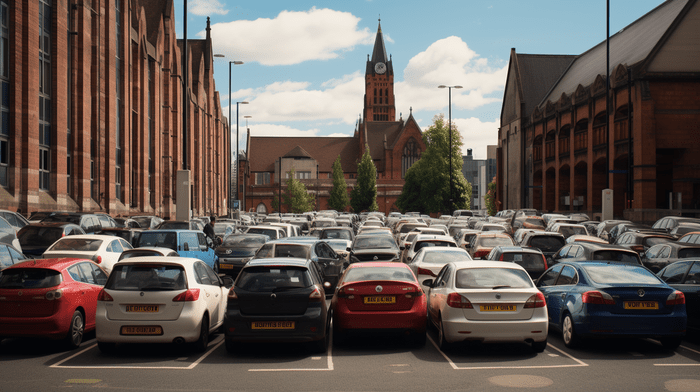

Parking problems in Birmingham

Birmingham, the bustling heart of England, is a city brimming with life, culture, and economic vigor. However, amid its vibrant energy lies a significant challenge - parking problems in Birmingham. In this article, we will delve into the intricacies of parking in this dynamic city, exploring interesting facts, statistics, and effective strategies to tackle the issue.
Understanding the Challenge
As the second-most populous city in the UK, Birmingham is a thriving metropolis with a population nearing 1.2 million. This vibrant urban landscape boasts an array of cultural attractions, shopping districts, and lively neighborhoods. However, the popularity of the city also translates to a high demand for parking spaces, giving rise to persistent parking problems in Birmingham.
Facts and Figures
Statistics reveal a staggering reality: on any given weekday, Birmingham witnesses an average of 24,000 vehicles entering its city center. This annualizes to over 8 million vehicles navigating the city's streets, all vying for limited parking spots. This high demand has led to increased traffic congestion, longer commute times, and occasional frustration for drivers.
The Cost of Parking Woes
Apart from the obvious inconvenience, the parking problems in Birmingham also bear financial implications. Studies show that drivers in congested urban areas spend an average of 17 hours per year searching for parking, leading to an estimated cost of over £370 million annually in wasted time and fuel. This emphasizes the urgent need for effective parking management solutions.
Addressing the Issue
In response to the parking challenges in Birmingham, it's crucial to adopt a multi-faceted approach. Embracing public transportation, such as buses or trams, can alleviate some of the parking demand. Additionally, utilizing technology-driven solutions like real-time parking availability apps can help drivers identify suitable parking spots efficiently.
Local Initiatives
Birmingham City Council is actively involved in finding sustainable solutions to the parking predicament. They regularly update residents and visitors on roadworks, closures, and alternative routes through their official website. Staying informed about these updates can significantly aid in planning journeys and avoiding unnecessary delays.
Conclusion
Birmingham's urban landscape, though rich with opportunities, is not without its parking challenges. Through a combination of informed decision-making, utilization of available resources, and support from local initiatives, residents and visitors can navigate the city's streets with greater ease. By addressing the parking problems in Birmingham collectively, we can foster a more accessible and enjoyable urban environment for all.
